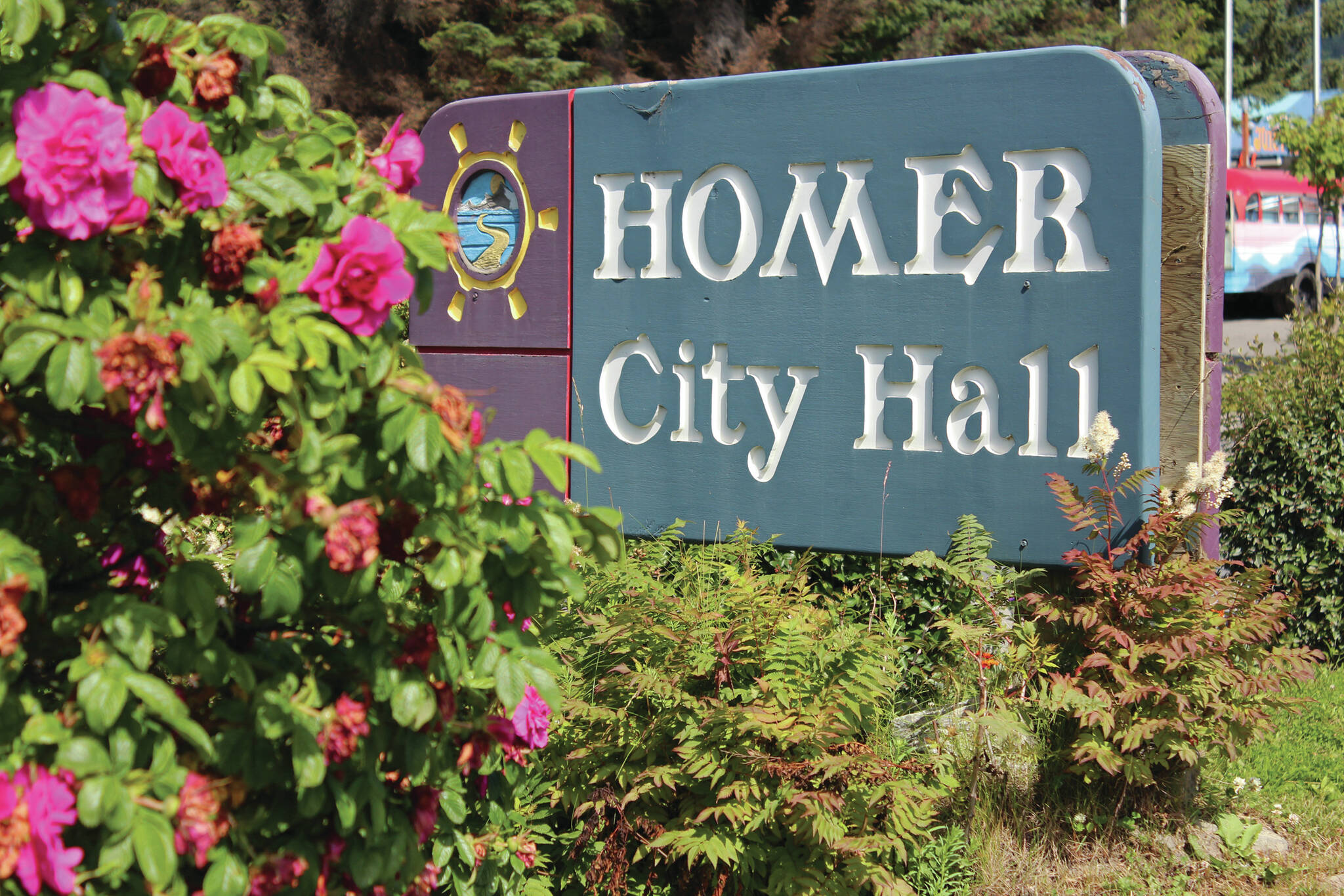A resolution opposing a trawler trade group’s legal challenge to federal halibut bycatch reduction efforts was passed Monday on the Homer City Council’s consent agenda.
Resolution 24-073 states “support of Amendment 123 to the Fishery Management Plan (FMP) for groundfish of the Bering Sea and Aleutian Islands (BSAI) management area which amends regulations governing limits on the Pacific Halibut Prohibited Species Catch (PSC),” according to the city website.
The move follows a June 10 Homer City Council meeting, during which several members of the community asked the city council to show opposition to a move by the Groundfish Forum, a trade association based in Seattle representing five companies and 17 trawl catcher-processors, contesting new regulations on halibut bycatch. The group filed a 42-page legal complaint on Dec. 19, 2023, challenging the National Oceanographic and Atmospheric Administration’s implementation of Amendment 123 to the Fishery Management Plan for the Bering Sea and Aleutian Islands. The amendment established an abundance-based management of halibut bycatch and replaced Amendment 80, which was a static halibut Prohibited Species Catch (PSC) of 1,745 metric tons.
The final rule for implementation of Amendment 123 was filed in the Federal Register on Nov. 22, 2023. The summary statement there explains that “this final rule is necessary to comply with the obligation in the Magnuson-Stevens Fishery Conservation and Management Act (Magnuson-Stevens Act) that FMPs minimize bycatch to the extent practicable. It is also consistent with the Magnuson-Stevens Act’s National Standards. This final rule is expected to minimize halibut mortality, and it may result in additional harvest opportunities in the commercial halibut fishery, as well as to the subsistence and recreational fisheries.”
Erik Velsko provided testimony to the city council last week on behalf of the North Pacific Fisheries Association, an organization that represents more than 60 local commercial fishing operations across Alaska, in support of a resolution opposing the Groundfish Forum lawsuit and upholding NOAA’s Amendment 123.
Velsko noted that the cities of Cordova, Petersburg and Sitka have all signed similar resolutions and “NPFA strongly urges the council to adopt this resolution. Especially as Homer is the halibut capital of the state, it would make sense.”
Paul Seaton also commented on the issue of halibut bycatch and abundance-based management. Seaton was a founding member of the Alaska Marine Conservation Council in the 1990s and stated that one of the first major projects the organization worked on was an effort to reduce halibut bycatch and the impacts that it has on inshore fishermen from Alaska’s smaller communities.
Seaton further explained that as the total halibut population is reduced the fixed cap of bycatch has become a greater percentage of the total allowable catch.
In reference to Amendment 123, “it’s a smart and easy way to transition management; it has taken years to get there and the trawl fleet is trying to avoid it again,” Seaton said.
Seaton also noted that there are no Bering Sea Aleutian Islands trawl fishermen in the Homer area or who deliver fish here.
“So this amendment is definitely something that supports all the longline fishermen, jig fishermen and charter operators. We’re trying eliminate the mortality on halibut from the trawl fleet.”
Longtime Homer fisherman Scott Adams has worked in Kachemak Bay, the Gulf of Alaska and the Bering Sea. He commented on how he has seen the industry change since he started fishing in the 1970s.
“I’ve been on the front end of the trawlers working on the grounds and then coming back to nothing left. It’s hard when you see your resources being hit by other individuals when they’re targeting one species but then they’re taking yours as well,” he said.
Adams mentioned other species have been impacted with bycatch harvest, noting that he once fished on a 400-million-pound quota for opilio crab and “now we don’t even have a quota.”
“We’re trying to keep the fleet going but with the trawl fleet taking as much as they are, the resources can’t rebound unless we have support from our cities and towns and even the federal government to get some restrictions on what’s happening,” he said.
Charter operator Billy Hayden owns several charter companies in Homer, including Silver Fox Charters and Maverick and is the current president of the Homer Charter Association. He said he would also like to see support from the city.
Additional charter testimony came from Jim Scamp and George Sutter, who also noted the destructive nature of bycatch as wasted fish. Sutter testified that “last year, by mid-July the reported amount of bycatch exceeded the entire charter allocation.”
Mayor Ken Castner asked Hayden how the halibut quota affects the charter fleet. Hayden explained that in area 3A, the largest regulatory area in the state of Alaska, the charter fleet was allotted about 1.65 million pounds of halibut to be caught between roughly 380 relatively small boats.
“We’re all tied in, whether we long line or we rod and reel and charter these fish, we’re based on an abundance-based management system.” He said that having a static cap on bycatch just doesn’t make sense, implying that the replacement amendment was appropriate.
Resident Michelle Beal testified that although she doesn’t personally have as much expertise in the fisheries as some of the others who provided comments, she knows that a healthy halibut fishery is critical for both the charter industry as well as the commercial industry.
“We’ve hosted friends and family come to fish in the halibut capital of the world and I think it’s really important economic component to the city residents. I’m pleased to see this on your agenda today and hope you support the resolution as a council,” she said.
The Alaska Marine Conservation Council, referred to in Seaton’s testimony, has also started a GoFundMe campaign, “Help Stop Halibut Bycatch” to help defend Amendment 123 with additional details on halibut bycatch from the perspective of the environmental organization. The campaign has raised $45,820 with donations from 297 sources as of Tuesday.


